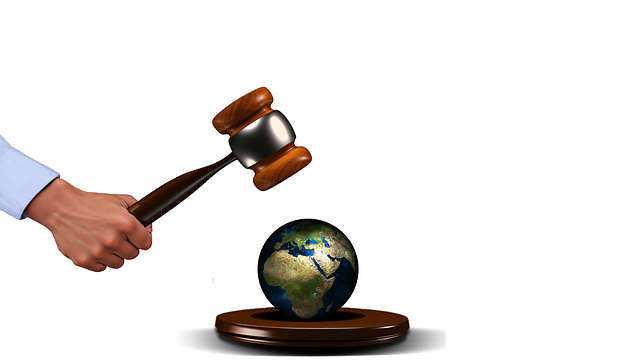Environmental crime trials pose significant legal challenges due to complexity and societal impacts, such as pollution and climate change. The Right to Counsel in Criminal Cases is crucial, ensuring access to specialized legal representation for white-collar environmental defenses. Specialized teams challenge scientific conclusions and interpret complex laws, offering strategic guidance through intricate regulations. This right is vital for fair treatment, protecting defendants from procedural errors, and safeguarding their futures in high-stakes cases with substantial fines and imprisonment. Future eco-criminal defense may involve increased collaboration between lawyers and scientists to adapt to dynamic environmental contexts.
“Environmental Crime Trials: Uncovering Justice in Nature’s Shadow explores the intricate legal landscape of environmental crimes, with a focus on the unique challenges and procedures these cases present. This article delves into the concept of understanding environmental crime trials from a legal perspective, emphasizing the vital role of the Right to Counsel in ensuring fairness. We examine strategies for representing eco-offenders and discuss future directions in this evolving field, highlighting the importance of access to justice in combating ecological transgressions.”
- Understanding Environmental Crime Trials: A Legal Perspective
- The Right to Counsel: Ensuring Fairness in Environmental Cases
- Challenges and Future Directions for Representing Eco-Offenders
Understanding Environmental Crime Trials: A Legal Perspective
Environmental Crime Trials present a unique challenge within the legal system, as they often involve complex scientific evidence and far-reaching societal impacts. From pollution covering entire communities to climate change-related offenses, these cases demand specialized knowledge and a deep understanding of environmental regulations. In this context, the Right to Counsel in Criminal Cases becomes paramount, ensuring that accused individuals have access to legal representation to navigate these intricate matters.
White collar and economic crimes, including those with an environmental bent, require a different strategic approach compared to traditional criminal cases. The white collar defense strategy often involves meticulous examination of facts, regulatory compliance, and potential mitigating circumstances. An unprecedented track record in successfully defending against such charges showcases the expertise and adaptability of specialized legal teams, who must not only challenge scientific conclusions but also interpret complex legislation.
The Right to Counsel: Ensuring Fairness in Environmental Cases
In environmental crime trials, where the stakes can be incredibly high and complex legal issues are at play, the Right to Counsel is paramount in ensuring fairness for all parties involved. Accused individuals face serious consequences, from substantial fines to potential imprisonment, so having competent legal representation is crucial. This right allows defendants to have an attorney defend them against environmental charges, providing a safeguard against potential procedural errors and offering strategic guidance tailored to their unique case.
The Right to Counsel in criminal cases acts as a cornerstone of due process, ensuring that the accused are not only aware of their legal rights but also have access to expertise that can navigate the intricate web of environmental regulations and policies. A skilled general criminal defense attorney can help his clients understand the charges, gather evidence, challenge prosecution assertions, and ultimately present a robust defense. This support is especially vital in high-stakes cases where the consequences could significantly impact an individual’s future, both personally and professionally.
Challenges and Future Directions for Representing Eco-Offenders
Representing eco-offenders, or those accused of environmental crimes, presents a unique set of challenges in modern legal landscapes. As environmental regulations become increasingly complex and globalized, so does the nature of these offenses. Lawyers tackling these high-stakes cases must navigate intricate laws and scientific evidence, often dealing with issues like pollution, habitat destruction, and climate change. The Right to Counsel in Criminal Cases is paramount here, ensuring that eco-offenders receive adequate legal representation. This is crucial for corporate and individual clients alike, as the consequences of environmental crimes can be severe, including substantial fines and imprisonment.
Looking ahead, the future of eco-criminal defense may lie in specialized environmental law practices and increased collaboration between lawyers and scientists. As these cases become more technical, experts from various fields will play a vital role. Additionally, with the evolving nature of environmental issues, legal strategies must adapt to address new challenges, ensuring that justice is served while considering the dynamic context of our planet’s health.
Environmental crime trials, with their complex legal landscapes, highlight the paramount importance of the Right to Counsel in criminal cases. As these proceedings navigate intricate ecological and juridical territories, ensuring fairness demands robust legal representation that can grapple with the unique challenges posed by environmental offenses. Future directions in eco-offender representation must focus on enhancing access to counsel, leveraging innovative legal strategies, and fostering ongoing dialogue between legal professionals, environmental advocates, and policymakers to address these evolving trials effectively.






